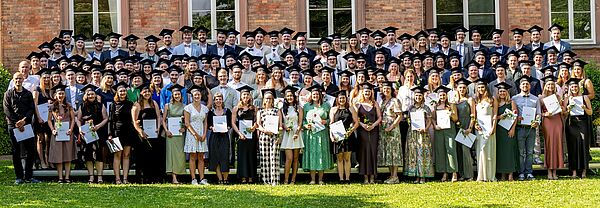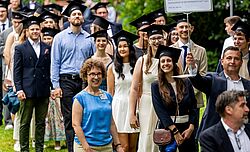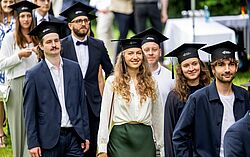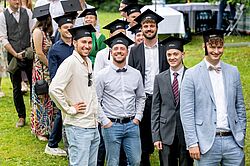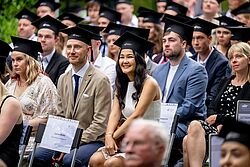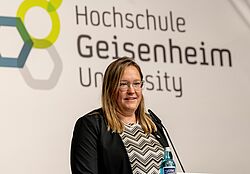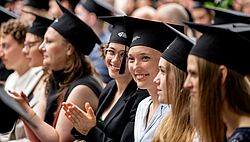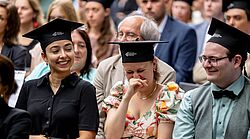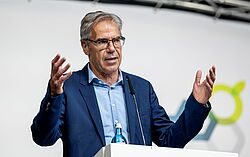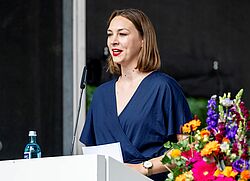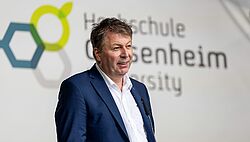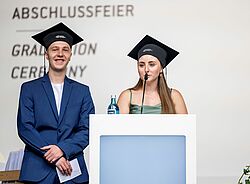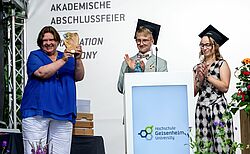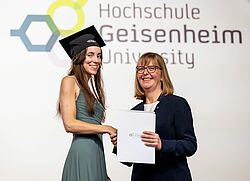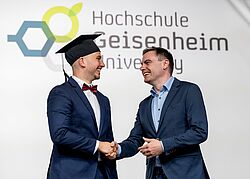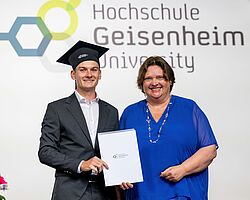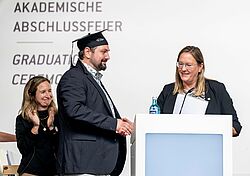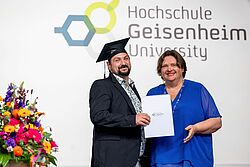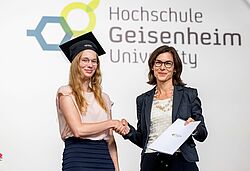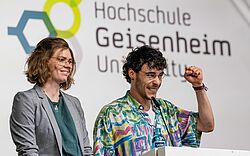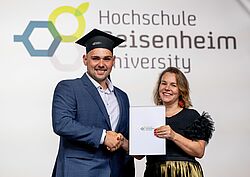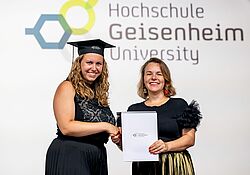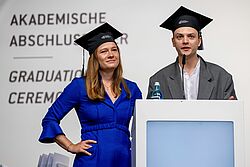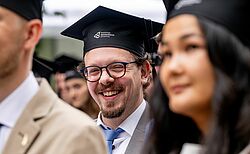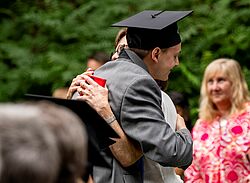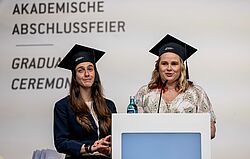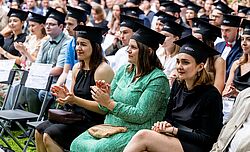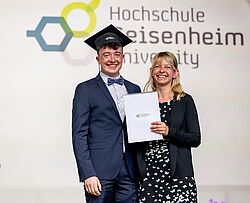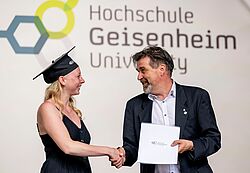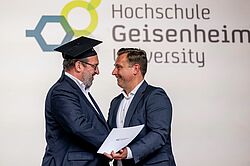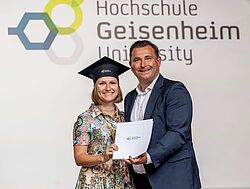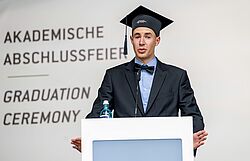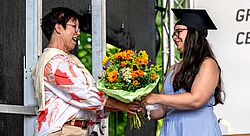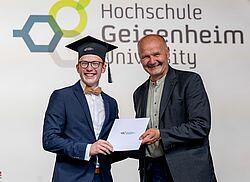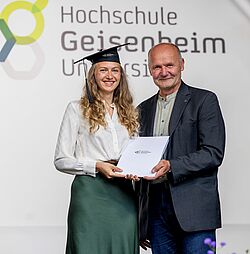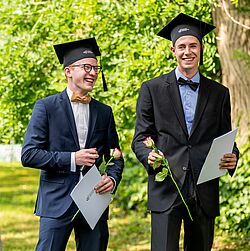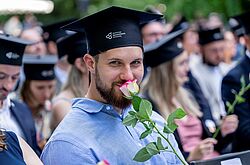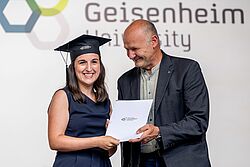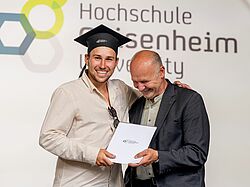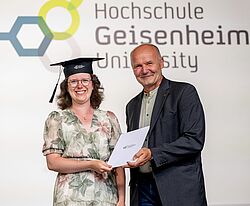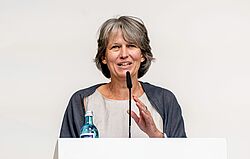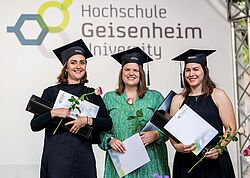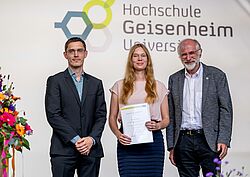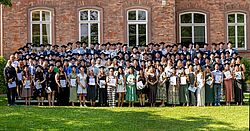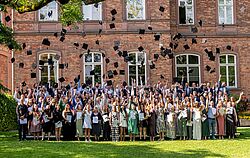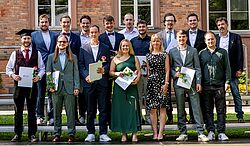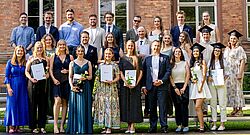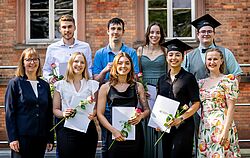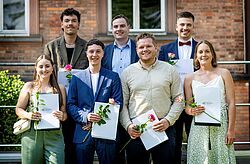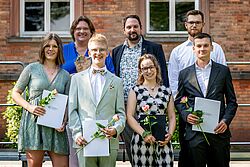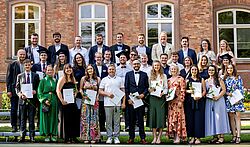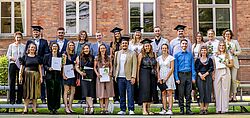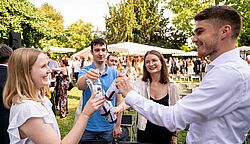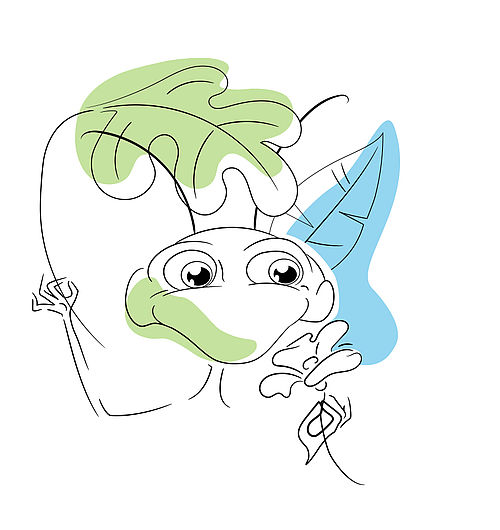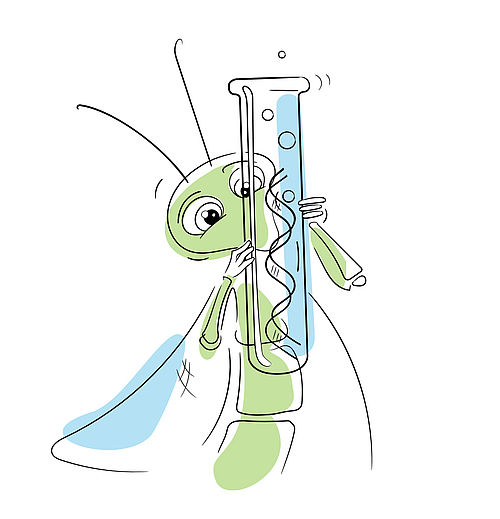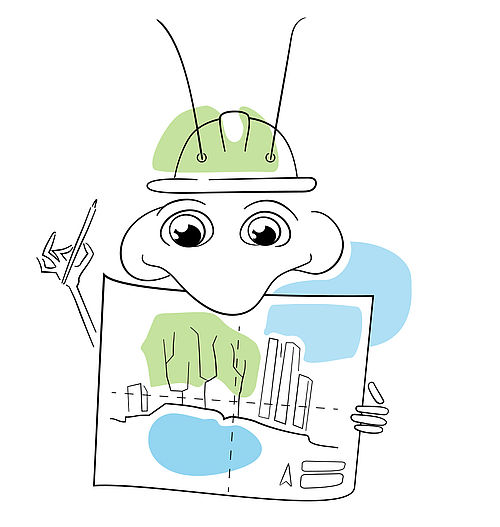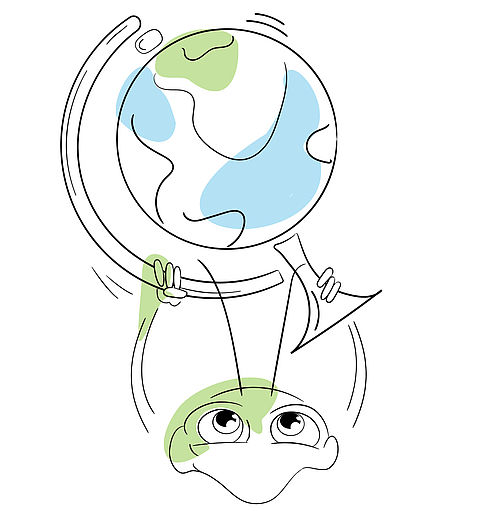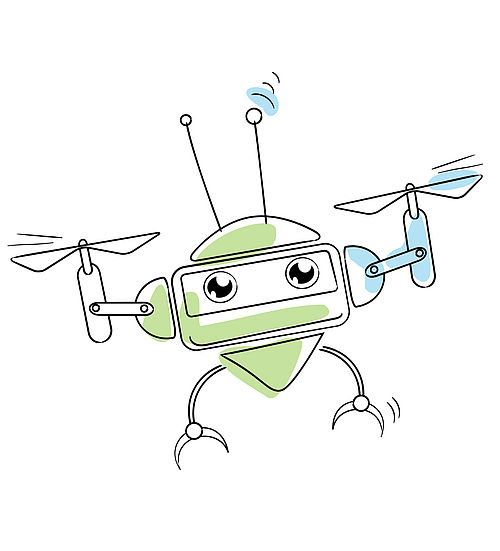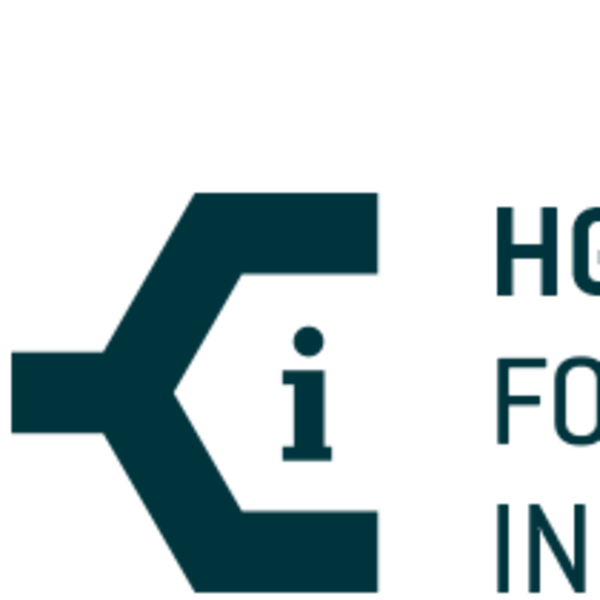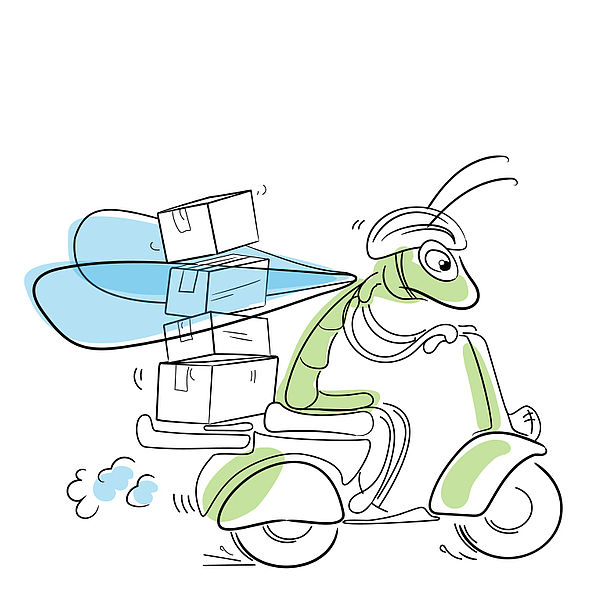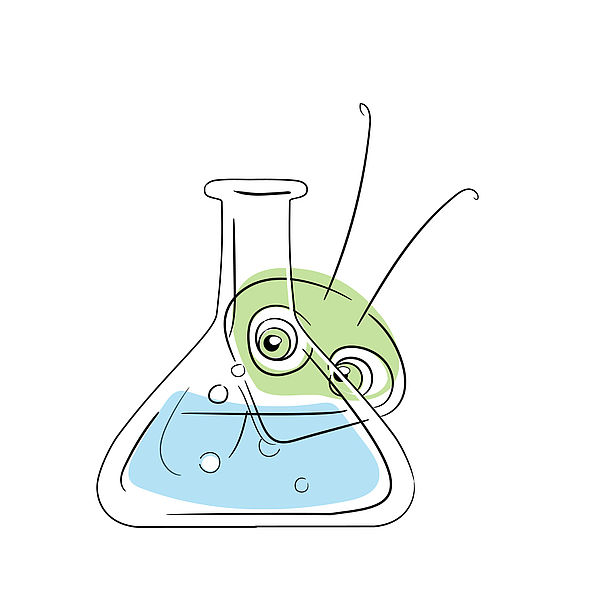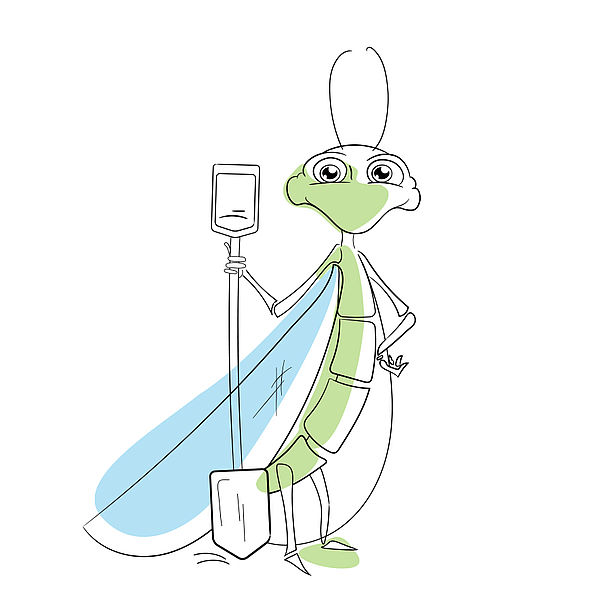During the graduation ceremony, Hochschule Geisenheim University (HGU) presented graduates of its bachelor's and master's degree programs with their graduation certificates. The President of Hochschule Geisenheim University, Professor Hans Reiner Schultz, as well as the Vice-President of Academic and Student Affairs, Professor Mirjam Hey, warmly congratulated the graduates in their speeches.
In her speech, Professor Hey emphasized the important societal role that graduates were now anticipated to fill: "With the training and knowledge that you have gained at Hochschule Geisenheim University, you have a social responsibility as future professionals and leaders. It is up to you to make ethical decisions and to fight for a fair and equitable world. Our university has equipped you not only with the technical skills, but also with the values necessary to act as conscientious professionals in society. You are now ambassadors for Hochschule Geisenheim University, equipped with knowledge, skills and a deep understanding of the balance between tradition and innovation, social responsibility and sustainability. Make use of the connections you have built here, remain curious and open-minded, and, above all, stay true to your principles."
Robert Lönarz Dipl.-Ing. (FH) gave his last speech as President of the VEG – Geisenheim Alumni Association e. V., opening with a latin proverb to emphasize how change is an inevitable part of life: "Tempora mutantur, et nos mutamur in illis – the times change, and we change with them." He joyfully congratulated the graduates on their outstanding achievements and encouraged those present to meet the challenges of climate change and technological advancements with courage and creativity. His appeal to the graduates to make use of the strong Geisenheim community and to actively participate in the alumni network was particularly moving. He concluded by thanking everyone for their support over the years and punctuated his speech with the emotional phrase "Once a Geisenheimer – always a Geisenheimer." This sentiment emphasized the deep, lifelong sense of belonging shared by Geisenheim graduates.
The speeches made by graduates of the various degree programs, which recalled personal experiences of their time on campus, were another highlight of the ceremony. The event was moderated for the second time by Geisenheim alumna Katharina Höfling and CelloDuo provided superb musical accompaniment.
Rudolf Hermanns Foundation Prize
The Rudolf Hermanns Foundation awarded a €500 prize to Katja Florschütz of the Crop and Horticultural Science M.Sc. degree program for her master's theses on the effects of magnesium deficiency on stomatal function and photosynthesis in Vicia faba L. Her thesis supervisor was Professor Christoph-Martin Geilfus, who also gave the laudatory speech.
Awarding of doctoral certificates, with a focus on flavor development, pest control and value creation in viticulture
A total of eleven doctoral students have graduated since last summer. Professor Annette Reineke, Vice-President of Research at Hochschule Geisenheim University, took a moment during the ceremony to present three scientists with their doctoral certificates:
- Jennifer Badura
Dissertation topic: "Characterization, regulation and genetic modification of the synthesis of aroma compounds in non-conventional wine yeasts", HGU supervisor: Dr. Christian von Wallbrunn
- Mathilde Ponchon
Dissertation topic: "The entomopathogenic fungus Metarhizium robertsii and its endophytic potential in grapevine to regulate radicicole grape phylloxera populations", HGU supervisor: Professor Annette Reineke
- Katharina Hauck
Dissertation topic: "Challenges of the organic wine sector - a value chain analysis of organic wine in Germany", HGU supervisor: Professor Gergely Szolnoki
Mathilde Ponchon completed a jointly supervised bi-national doctoral program as part of a cotutelle agreement with the Université Bordeaux, while Jennifer Badura and Katharina Hauck completed jointly supervised doctoral programs through the Geisenheim-Giessen-Marburg doctoral platform.
Hochschule Geisenheim University congratulates all graduates and wishes them every success in their future endeavors, whether the next step is a professional life, a master's degree or an academic career!
Further information:
Provisional status of the number of graduates as of July 25, 2024. The spoken word takes precedence. As some students will still graduate by the end of the semester, the final figures can be requested at Vizepraesidentin-Lehre(at)hs-gm.de.
Students from the previous semester (winter semester 2023/24) who graduated after the previous ceremony were named and given a letter of congratulations if present.
About the Rudolf Hermanns Foundation:
The foundation awards prizes of up to €12,500 for outstanding achievements in all areas of viticulture and horticulture. The aim is to honour scientific work that has led to the further development of these fields, with consideration of practical elements. It is a foundation of Hochschule Geisenheim University and has been awarding the prize since 1991. For more information, please see: https://www.hs-geisenheim.de/rhs
Photos: Torsten Silz/Hochschule Geisenheim University
You can view more photos of the event here (by following the link, you will leave the official HGU website).
Video of the graduation ceremony on Instagram: Hochschule Geisenheim (@hsgeisenheim) • Instagram

